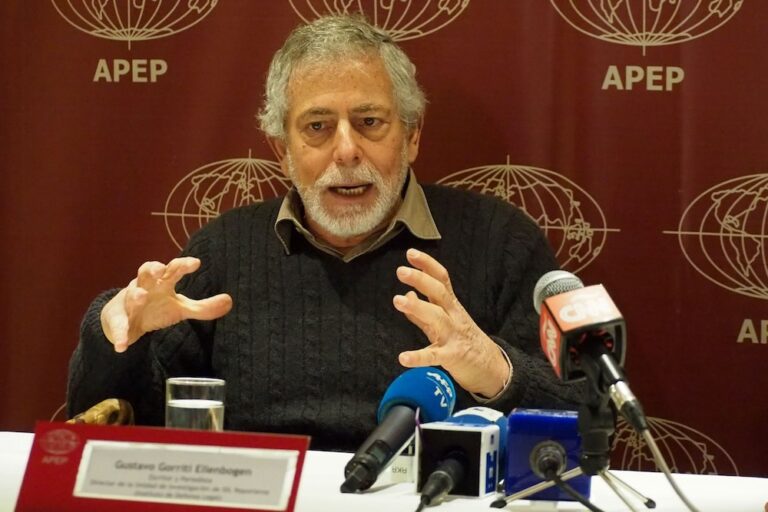(IPYS/IFEX) – Officers of the National Division of the Peruvian National Police Special Operations department (Division Nacional de Operaciones Especiales de la Policía Nacional del Perú, DINOES – PNP), intercepted two journalists who were recording an extensive deployment of military and police personnel in the city of Chimbote, department of Ancash, in northern Peru. Free […]
(IPYS/IFEX) – Officers of the National Division of the Peruvian National Police Special Operations department (Division Nacional de Operaciones Especiales de la Policía Nacional del Perú, DINOES – PNP), intercepted two journalists who were recording an extensive deployment of military and police personnel in the city of Chimbote, department of Ancash, in northern Peru.
Free lance journalist Hugo Meza and Marilú Gambini, a correspondent for the “Liberacion” daily in Chimbote, reported that on 30 May 2000, at approximately 5:00 p.m. (local time), Meza was recording the deployment of military and police personnel and helicopters flying over Chimbote’s main square. A Peruvian National Police (PNP) officer, identified as Juan Carlos Cacique, intercepted them in an arrogant manner, first addressing Meza and then Gambini and asking them for their accreditation.
While the journalists were being questioned and urged to turn in their camera and the footage they had obtained, and were seemingly at the point of being arrested, Meza called IPYS from a public telephone to report the incident. IPYS was able to communicate with Lieutenant Cacique, who suggested that Meza had simply been warned that he had no right to record events without identifying himself and displaying his journalistic accreditation. IPYS asked the police officer to allow the journalists to carry out their work. At the same time, IPYS spoke with the director of Canal N via another telephone line, who arranged for local reporters to immediately head to the region where the incident was taking place.
Gambini noted that since Saturday 27 May, one day before the elections, a three-block section of town around the main square has been cordoned off. The area was cordoned off to prevent the spontaneous demonstrations that university students have been holding to protest electoral fraud from reaching the premises of the Decentralised Electoral Processes Office (Oficina Descentralizada de Procesos Electorales) and other governmental offices. Since that day, a number of confrontations have occurred resulting in serious injuries and it has become increasingly difficult for journalists from the various media to cover the events.
When IPYS filed this alert on 30 May, Augusto Riera, IPYS correspondent in Chimbote, was in communication with Lieutenant Cacique to find out more about the incident. The documentation was returned to the journalists, however they were still fearful that they would be detained or subjected to some kind of retaliation at a later date. The immediate response of members of the IPYS network and the presence of television station reporters with their cameras prevented the journalists’ immediate arrest.


